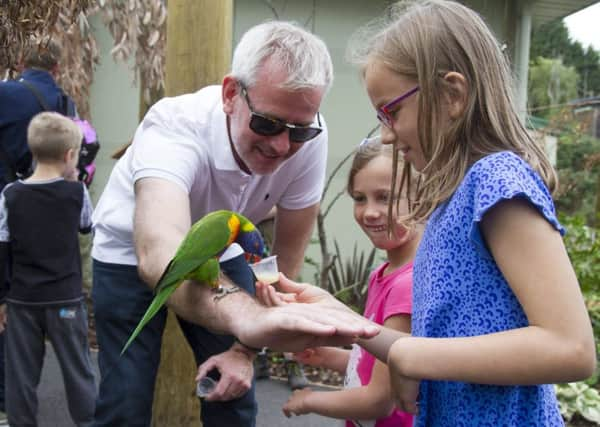Zoo: Half a million reasons why they are here to stay – Steve Cardownie


Despite some forecasters predicting that zoological parks would lose some popularity in the face of fierce competition from other leisure activities – and that they were nothing other than prisons for animals which had no place in the modern world – it would appear that such forecasts are wide of the mark. If half a million people still pay a visit to the zoo it would seem that they are just as popular as ever.
The ethics of keeping animals in captivity have been the subject of much debate throughout the years and some public perceptions have been influenced by documentary films which have cast a shadow on the need for zoos in the modern age.
Advertisement
Hide AdAdvertisement
Hide AdThe argument against zoos is well documented and makes interesting reading; they cannot provide the amount of space that animals have in the wild – particularly for species that roam huge distances in their own habitat with lions and tigers in particular having around 18,000 times less space than they would have in the wild.
African elephants live three times as long as they do in zoos and other animals suffer premature deaths – with many animals deemed surplus to requirements being put down. Some zoos train animals to perform tricks such as performing sea lions, birds and elephants, which demeans them.
It is claimed that 70 per cent of elephants in European zoos were taken from the wild and that 79 per cent of all animals in UK aquariums were also caught in the wild, which is cruel and causes suffering.
Although zoos claim that they breed animals for eventual release in the wild, breeding programmes are primarily to maintain enough captive animals. Zoos spend millions of pounds on keeping animals confined while their natural habitat is destroyed and animals killed due to insufficient monies being deployed for their protection.
Advertisement
Hide AdAdvertisement
Hide AdThe opponents of zoos maintain they are committed to animal welfare and cite the above arguments in support of their cause.
But what of the arguments in favour of zoos?
Whilst conceding that some zoos fall short of what is expected, supporters of “good” zoos say that they are not only necessary but are to be welcomed. Zoo advocates declare that they save endangered species, educate the public and foster an appreciation of the animals. They save some species by providing a safe environment free from predators, poachers or loss of habitation.
They say good zoos provide a habitat in which the animals are never bored, are looked after and have plenty of space. Tradition dictates that visits to the zoo take the form of family outings and that seeing a live animal close up and personal is far more satisfying than watching a documentary.
The debate over the nature of zoos and their treatment of animals in their care will continue. Many will come down on the side of the good work that zoos do to promote and protect endangered species and the assistance they provide in helping the public to understand wildlife. Others will feel the costs outweigh the benefits and the violation of the rights of individual animals is unjusified.
In the meantime Edinburgh Zoo, which is one of the best, will continue to open its doors 365 days of the year.
